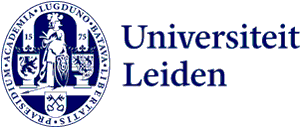
Language both connects and divides
Author and political scientist Mounir Samuel has spent recent years delving into the many ways that language can exclude people and bring them together. 'How we think about politics, about history, about one another: everything starts and ends with language.’ Samuel is a keynote speaker at the diversity and inclusion symposium on 19 January.
‘I regard language as a means of dealing with all the big societal problems of the present day,' Samuel explains. 'From racism and climate change, to loneliness and how we interact with one another.' He has written a book on the subject Je mag ook niets meer zeggen (in English: 'You can't say anything any more'), that is due to be published at the start of February. 'The title alone shows just how powerful words can be. You either think it's ridiculous or you believe it's the truth. It is a statement about which everyone has an opinion and a feeling, and it demonstrates straight off just how important language is.' And that is exactly what Samuel will be talking about in his keynote speech.
Language has the power to expose or deny things
‘I want to explain what words do, the systems they create,' he explains. 'Language lays society bare. Xenophobia or homophobia don't start with a physical blow or a kick; no, they have been embedded in the societal discourse for years, decades, or even centuries. The same applies to gender. Just think of the way we talk about babies. It's a boy or a girl, and in Dutch the word for ''girl'' even has a diminutive ending. Even before birth, a whole institutional system has been constructed between men and women. And that's before we start to think about gaps in language. There are no words, for example, for people who have a third gender, or no gender, or who are non-binary. What effect does it have on you if there's no word in the language for the way you are?'

The values behind words
Samuel raises the issue of the growing need for new ways of talking about major themes in society. 'People want to discuss these issues with one another, but they don't know how. They're afraid of making a mistake, of saying the ''wrong'' thing. They feel trapped. So I think we have to be more relaxed about which words we use, and that we really need to look at the values hidden behind words. What values does Leiden University want to aim for? And what needs to be done to achieve that?'
These values may include such things as decolonising the university and making it into a gender-inclusive institution. If you take these values as your starting point, you can explore how to shape them in practice, and make concrete interventions by, for example, making changes to the curriculum. When I studied political science here ten years ago, I was taught about only one female political thinker, and absolutely no political thinkers of colour, not to mention zero political thinkers from outside the United States or Europe. No attention at all was paid to such themes as religion, spirituality, Southern or Eastern philosophy. Not a single word was spoken about what shaped man thousands of years ago or what the impetus was behind major cultural and political developments.'
Bursting bubbles
It is clear where Samuel thinks the university can make a difference. But what advice does he have for students? 'As a student you are working towards a specialism, you are making an in-depth study of a theme But, you can try to take a broader approach, and then particularly outside your own bubble. Take a day to go and help in a foodbank, for example, or visit a mosque for Friday afternoon prayers. What's it like for you to be there, where you are the outsider? What does that feel like? During my keynote, and particularly during the afternoon workshop I'm giving, I'm going to introduce new values and ideas, but I'll also teach you how to have that conversation - both with yourself and also with other people - about all those uncomfortable feelings we can so easily get caught up in.'
You can follow the D&I Symposium Language, inclusion and belonging on 19 January live or online. The offline programme is already fully booked, but you can still register for the online programme.
Text: Julie de Graaf
Photos: Nienke van Denderen
